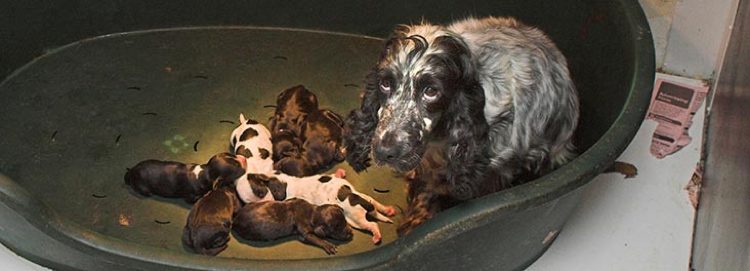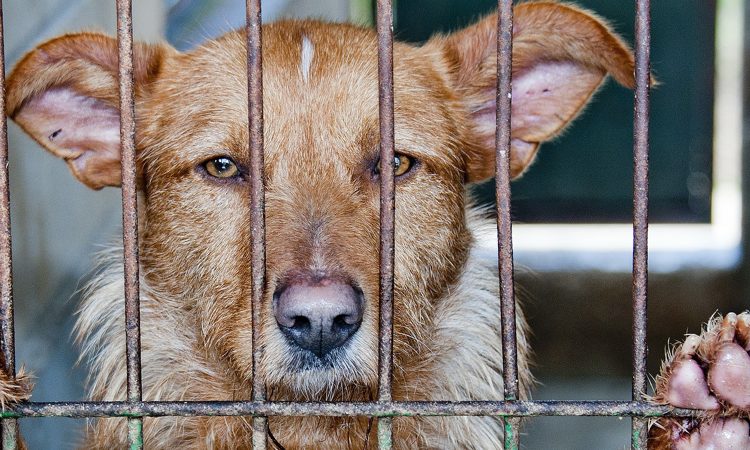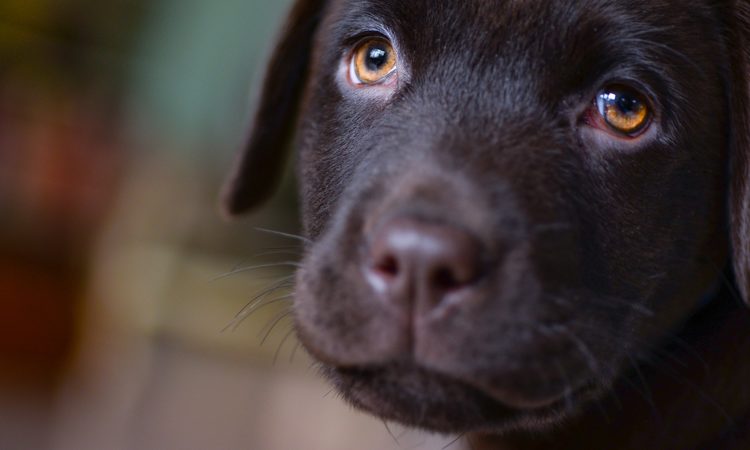Puppy farms have been making headlines in the last few years, yet new research reveals that this issue has not yet become the first thing many people consider when buying puppies. Shocking headlines and behind-the-scenes footage revealing the horrible breeding conditions that farmed puppies face has raised awareness of this cruel practice. But how much does the general public really know about puppy farms?
We’ve pulled together the facts and figures from the research, as well as advice from the RSPCA on how to ensure you buy a puppy who’s been bred responsibly.
What is a puppy farm?

GoCompare have teamed up with the RSPCA to make this video – be warned, it contains footage of puppies in dirty cages and some viewers might find this upsetting.
Shockingly, recent research conducted by GoCompare revealed that, despite the recent high profile case the issue of puppy farming has received, 1.2 million UK adults think puppy farms are a good option when it comes to getting a puppy and more than one in ten UK adults had never heard of the term ‘puppy farm’. What’s more startling is that 53% of survey respondents believe that the dog’s breed is the most important thing to consider when buying a puppy farm.
Puppy farms are essentially any environment where puppies are bred for profit, with little consideration given to to the long-term health and welfare of the dogs involved. Puppy farm breeders tend to ignore standard practice and regulations and authorities generally haven’t been tough or vigilant enough in enforcing these. Until recently, it was completely legal to sell a puppy under eight weeks old; thankfully the UK government have introduced new laws that makes it a requirement for any breeder selling three or more litters a year to be properly licensed.
One of the problems with tougher laws is that puppy farm breeders very rarely sell directly to the public. Instead they usually make money through a third party; it’s estimated that one in four puppies bought and sold in pet shops are from puppy farms.
Dogs bred on puppy farms are often kept in cramped, dirty and dark conditions. We all know that dogs need play, exercise, socialisation and a spot of grooming every now and then. There’s very little chance of this happening on a puppy farm. Watch the video above for a better insight into the conditions faced by puppies bred this way.
Why is puppy farming bad news for dog welfare?

Puppies bred in squalid, cramped and dirty conditions as found at a puppy farm are more likely to suffer from health issues. The breeder may scrub up the puppies so they look good in a pet shop, but one in five puppies bought from a newspaper or online ad ramp up vet bills for their new owner – costing them up to £500-£1,000. Around 20% of puppies bought from pet shops or online suffer from parvovirus, which can prove to be deadly for the puppy and can cost up to £4,000 to treat.
There are reports of proud new owners getting their puppy home only to discover that the pooch is very ill; fur can fall out, dogs have been found vomiting up worms, or have tragically died far too young.
Breeding bitches
That’s not even the worst of it. Tragically, it’s the breeding bitches who are treated the least humanely; many of them are kept in confined conditions, with their puppies taken away from them too soon. Like Lucy (pictured below), a rescued breeding bitch who sadly passed away in 2016 – but not before she helped spread awareness of bitches like her, kept in horrible conditions and forced to repeatedly breed litters of puppies without respite and socialisation.
The puppies are relatively lucky by comparison – at least they’ll see the light of day and have a chance at a happier life with a loving owner. That’s if they survive the health risks posed by the environment they were bred in. Welfare-conscious breeders won’t breed a bitch during her first season, which is in-line Kennel Club advice, and they’ll allow for breaks between seasons, so the bitch can rest and enjoy her life, too.
Puppy farm breeding bitches, on the other hand, are often denied these mercies, and are treated with neglect and disdain by puppy farm breeders. We’ve heard stories of breeding bitches who are dumped or destroyed when they’re no longer useful to the breeder, which is simply inhumane and cruel. Their lack of socialisation and harsh treatment make these dogs slightly challenging to adopt, so if you’re not quite ready for a rescued breeding bitch, don’t worry – there are other ways you can help.
The responsible way to buy a puppy

If you’ve got your heart set on a new puppy (who can blame you!) don’t worry; there are plenty of responsible breeders out there who care for the dogs they breed. The best way we can recommend to find a reputable, trustworthy and caring breeder is to search on the Kennel Club website for Assured Breeders.
Here are the best, RSPCA approved tips for how to responsibly buy a puppy and ensure it’s not been bred at a puppy farm:
- Visit the breeder and see where the puppy has been kept: don’t meet the breeder/seller in a mutual meeting place like a park, pub or car park.
- Insist on seeing the puppy interact with it’s mother – you’ll be able to spot the puppy’s true mother by the affection she shows to the puppy and her teats will be visible. If she’s disinterested, aloof or even aggressive towards the puppy, she’s probably not the real mother!
- Ask details about the puppy and make sure you see the puppy before purchasing: a puppy shouldn’t be parted from its mother under eight weeks old – and puppies cannot be vaccinated younger than this.
- Ask to see the breeder’s license number: it’s now UK law for any breeder selling three or more litters a year to be licensed. A reputable, trustworthy breeder won’t have any qualms showing you their documentation.
- Use the Puppy Contract: it’s really important you insist on this – don’t be embarrassed! A responsible breeder won’t have any qualms providing information about the puppy’s parents, health information signing. This contract has been endorsed by leading animal welfare charities, including the RSPCA, the British Veterinary Association (BVA), Dogs Trust and others.
If the seller or breeder seems suspicious or refuses to agree to any of the above – please don’t purchase the dog – you will be effectively funding the cruel puppy trade, enabling the money-driven practice to continue and making it harder to end puppy farms for good.
Alternatives to buying a puppy
Of course, there are other ways to fill that dog shaped hole in your life, as organisations like Dogs Trust, the RSPCA and PupAid will tell you – Adopt Don’t Shop!
The RSPCA rehomed an astonishing 47,651 animals back in 2015 – and many of them were dogs. Becoming an adoptive dog-parent is one way you can help give dogs who’ve had a rough time a second chance at a new, loving life.
Check out the RSPCA’s website for more information and advice for adopting a dog in need of a new home. You can also find out more about how DogBuddy is supporting the RSPCA to rescue, rehabilitate and re-home abandoned dogs here – plus make a donation to help this amazing charity continue its important work.